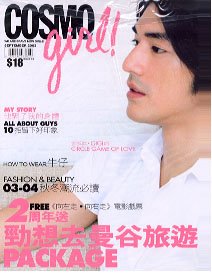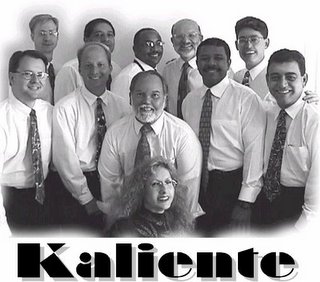Perhaps Love (
2005; d. Peter Chan; s. Takeshi Kaneshiro, Jackie Cheung, Xun Zhou)
Hong Kong films understand myth.
They literalize metaphor, making theme into the guiding force of a relationship, often moreso than any recognizable human behavior.
I would say this was an ethnocentric position, but there is a direct correlation between John Woo’s willingness to make manifest his particular obsessions and themes in the absolute wonkiest way possible, and the success of the work correlated exactly with how explicitly they treated the metaphors (tracked in a straight line from
Hard Target to
Broken Arrow to
Face/Off, and then back down the line again through
MI: 2. And
The Mirror Has Two Faces).

I hoped the restraint of the studio system might create an interesting tension with the unhinged brilliance of the Hong Kong stylists; instead, with rare exception, Hollywood just watered them down.
If there’s anything more stylized than an action film (with its doublings and who watches the watchmen identity switching), it’s a musical. Needless to say, you didn’t need to ask me twice to watch my first Hong Kong musical. And it was everything I hoped it would be—all the energy and insane passion of Moulin Rouge!, along with a didactic presentation of the themes in the narration and the music, along with some of the most brutal romantic reversals I have ever seen on screen outside of Crossroads.

Things they do better in Hong Kong:
Antagonists get to be equals. It seems like a fairly simple principle—your hero is defined by your villain. A great villain makes for a great hero (Exhibit A: Alan Rickman in Die Hard, with Exhibit B: Alan Rickman in Robin Hood: Prince of Thieves missing by a hair only because his great villainy was still overcome by Kevin Costner’s very mediocre performance. You still forget how truly bad that movie could be). Importantly, the antagonist in Perhaps Love is not a villain. Although I love Richard Roxburgh’s ability to swing from Snidely Whiplash to a character of real menace in Moulin Rouge!, it would have been interesting to see him do what Jackie Cheung does in this movie, play a powerful man driven to distraction when the woman he loves cannot see him as more than a business transaction. He begs, he threatens, he violates, he accepts, and then pulls a grand gesture that generates an entirely unexpected ending.
Similarly, Kaneshiro isn’t left to be just an idealized pretty boy hero—he indulges in an act of emotional violence that is almost worse than Jackie Cheung’s own gesture. And which again relates to the movie’s overall themes (sung by the Angel character at the beginning) regarding the present and past being mere traps, and life needing to be lived in the present.
Since I mentioned him: here's a little something for the ladies. And Frank.

There’s room for three. The female character is not blown off in this film. She is not a victim, she is not a passive prize for two powerful men to fight over, she is not an idealized love object. You get to see her ambition, her betrayals of herself and Kaneshiro, and exactly why she lives the way she does. They don’t cheat and make her a traumatized victim to explain her mysterious past; instead, all her reactions are legitimate functions of her choices, which are selfish, but understandable. Even if we kept calling her ‘whore.’ Hey, just because you have three equals in a movie doesn’t mean you can’t have a rooting interest in somebody.
They understand myth. This is a movie that is not afraid to be about big ideas. It hangs Big Ideas out there in the songs, and throughout the movie, even though it’s insulated around these three people (no ancillary people are breaking out into song), it’s scoping for something epic. A lot of people got turned off by this in Moulin Rouge!—the idea that the people were barely recognizably human in sanding a musical down to its bare essence. And as with Moulin Rouge!, the themes in Perhaps Love are nothing new—life is a circus, life is a movie, we’re all performers, memory is treacherous. Still, when you’re so inventive with the characters, and you come up with one hell of a brave ending (including a swaggering, self-satisfied smile all over the Angel’s face, who as far as I can tell mostly fucked everything up in a way that may or may not have been for the better), you’ve earned the right to at least get the discussion started.
This movie looks great, sounds great (even when you can’t understand the words), and while it’s not reinventing the musical like Singin’ in the Rain or The Umbrellas of Cherbourg, it does mine out something unexpected, just when you thought you knew what you were in for. It makes me want to go back and watch the opera of The Killer, and wonder what would happen if they let Chow Yun Fat break into song here and there. Now that’s an experiance that we would find most kaliente.
Next Time: Tsotsi!





1 Comments:
This is good work. Finally.
Post a Comment
<< Home